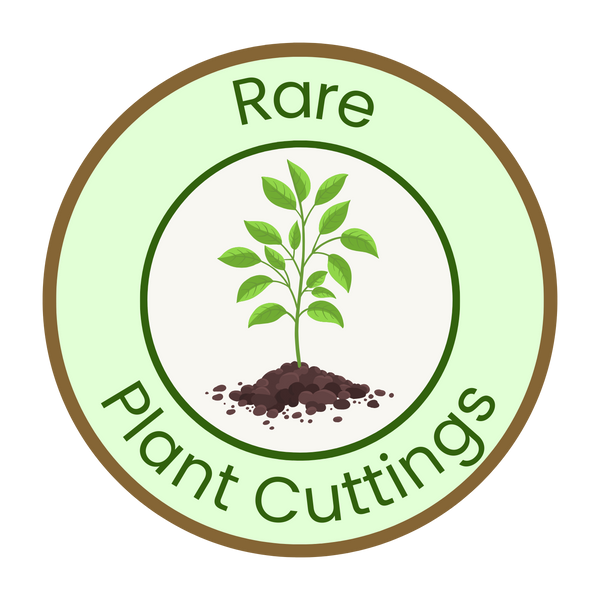Rooting Cuttings Instructions
Guide for Rooting Cuttings
*ATTENTION - The bottom side of the cuttings / scions will be indicated by the sharpie written variety label. We always write the variety of the cutting or an abbreviation on the bottom side with the text reading toward the top side of the scion.
Materials Needed-
-
● Plant cuttings
-
● Sterile pruning shears
-
● Rooting hormone (auxin-based, e.g., Hormodin 3 or Clonex Gel)
-
● Sterile growing medium (50% perlite, 50% peat moss or coco coir)
-
● Plastic pots (4-6 inches)
-
● Clear plastic bags or humidity dome
-
● Spray bottle with distilled water
-
● Alcohol wipes
Procedure:
-
Preparation:
-
○ Using sterile pruning shears, make a diagonal cut 1-2cm below a node.
-
○ Sterilize pruning shears with alcohol wipes before and after each cut.
-
-
Growing Medium:
-
○ Mix 50% perlite and 50% peat moss or coco coir in a container.
-
○ Moisten the mix thoroughly with distilled water, avoiding waterlogging.
-
-
Preparing Cuttings:
○ Dip the cut end in the rooting hormone.
-
Planting:
-
○ Fill pots with the prepared soil.
-
○ Make a hole in the medium with a pencil/stick.
-
○ Insert the cutting into the hole, burying at least one node, and firm the soil around it.
-
-
Humidity Control:
-
○ Cover each pot with a clear plastic bag or place under a humidity dome.
-
○ Make sure the soil is damp, but not soaking wet.
-
-
Watering and Care:
-
○ Place pots in bright, indirect light. (Shady Area)
-
○ Maintain high humidity by misting with distilled water daily.
-
○ Keep the medium moist but not waterlogged.
-
-
Root Development:
○ Check for roots after 4-6 weeks by gently tugging on cuttings; resistance indicates root formation. (DO NOT CHECK FOR ROOTS AND DISTURB / PULL OUT CUTTINGS IN UNDER 2-3 WEEKS)
8. Acclimation:
-
○ After 2-3 Weeks, Gradually acclimate cuttings to normal humidity by slightly opening the plastic bags/dome over several days.
-
○ Transplant rooted cuttings to larger pots with standard potting soil after acclimation and new growth.
Common Mistakes:
-
-Planting the cuttings upside down
-
-Planting without making a cut below the node
-
-Placing Cuttings in direct sunlight
-
-Overwatering the soil
-
-Watering the plant with tap water containing chlorine, (spring water works best)
Buy Mango Scions Here
-
 Sold out
Sold outMango Scions
Regular price $9.95 USDRegular price

